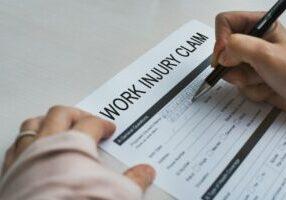
Georgia state employment unfairly tends to have an unjustified association with a sedentary work environment, but the reality is that the State of Georgia employs nearly 70,000 hard workers across a diverse array of sectors, including construction, healthcare, administration, and public safety. It’s also important to note that even though serious workplace injuries are more likely to happen in these types of high-risk and physically demanding jobs, there is still plenty of risk involved with office jobs where sitting at a desk for long periods of time can devastate a person’s body and career. Regardless of how injuries happen, workers’ compensation is designed to protect all employees and help them recover quickly.
Unfortunately, there are many issues that can come up along the way. If you have questions about filing a state employee injury claim or are having difficulty getting your claim approved, Ramos & Law can help expedite the process and protect you from predatory insurance companies. Contact us for a free consultation.
What State of Georgia Employees Are at the Greatest Risk of Injuries?
As mentioned, workplace injuries can happen regardless of what sector or field you work in, though some jobs are simply more dangerous than others. Below are examples of some of the more high-risk state jobs where employees may find themselves filing a workers’ compensation claim.
Healthcare Workers
If you’re a state-employed healthcare worker, then you likely encounter serious health risks on a daily basis. If working in a clinical setting, you not only risk suffering from sprains, slip and falls, or hernias, but you may also risk your health and well-being through exposure to infectious disease, bodily fluids, or needle stick injuries. If you’re an EMT, you may face the highest level of risk, as your job likely demands navigating intense and dangerous traffic conditions and interacting with individuals who can in some cases be violent. Even in a non-clinical setting, healthcare workers are still exposed to more disease and heavy lifting than other types of workers, especially in an administrative or educational role.
Law Enforcement Officers
Other state-employed first responders face a large amount of workplace injuries as well—most notably, law enforcement officers. According to most studies, the most common injuries that police officers face on the job are musculoskeletal. If you’re a police officer or employed in another area of law enforcement, such as the corrections system, the FBI, or the ATF, you know that you’re often required to respond to action on a moment’s notice. Rushing to the scene of an incident can result in sprains, strains, slip and falls, as well as motor vehicle accidents.
Injuries resulting from a direct altercation are also a risk for law enforcement officers. Depending on the call, you may be responding to a violent person with a weapon. Even with the protection of a bulletproof vest and your firearm, the risk of a serious injury or even death is ever-present.
Construction and Civil Engineering Workers
Construction is arguably the trade that is most commonly associated with workers’ compensation. At every stage of the building process, construction workers are exposed to almost every type of injury imaginable, including electrocution, falls, strains, herniation, toxic substance exposure, eye injuries, loss of limbs, and even coma or death. The level of risk for these and many other possible construction injuries is lowered slightly if you are a civil engineer and architect, but when on the job site, no one is completely safe when an accident occurs.
Transportation Workers
Vehicular accidents are incredibly common in daily life, but they’re even greater risk when your job requires that you spend several hours a day behind the wheel. Many state transportation workers also face unique risks and injuries due to the specific vehicles that they operate.
For example, if you are a public transportation worker, such as a MARTA bus driver, you may face dangerous confrontations with passengers, difficulty navigating narrow streets, or distractions from the sheer number of passengers that a public bus can hold. You may also face pressure to uphold a route schedule, adding to the already stressful and dangerous conditions that come with the job.
What to Do After an On-the-Job Injury as a Georgia State Employee
If you are injured as a state employee, and your injury requires immediate emergency intervention, call 911 or go to the nearest emergency room and tell medical staff that you were injured on the job.
Once safe to do so, notify your employer of your injury. This must be done within 30 days of your injury. If your injury is not an emergency, you generally must see a doctor within Georgia’s Managed Care Organization (MCO). Upon notifying your State agency, they should be able to provide you with the MCO, along with additional information you’ll need to file a claim.
The next stage in the process is filing your claim by completing and submitting Form WC-14. You should also hear from a representative from the Department of Administrative Services (DOAS). They will be investigating the seriousness of your injuries and the validity of your claim. They will also manage the claim and determine your possible settlement amount.
Do You Need a Lawyer for a Georgia Workers’ Compensation Claim?
Generally, Yes, While you aren’t required to work with a lawyer to file a workers’ compensation claim, it will make a difference especially if you’re dealing with significant injuries. The process for filing for workers’ comp may seem simple at first glance, but there is a lot that can go wrong, especially if you attempt to communicate with DOAS on your own.
When investigating your claim, the DOAS adjuster may try to get you to say things that may invalidate your claim, even if you have a legitimate reason for filing. The reason for this is to minimize the amount that they have to pay. They may even try to deny your claim based on incorrect information accidentally relayed by you or your employer. A workers’ compensation lawyer can help by communicating with your employer and the insurance companies on your behalf. They can also file all of the necessary forms before the deadlines so that you can focus on your treatment. If, for some reason, your claim is denied, a workers’ comp attorney can also represent you in an appeal, giving you a much better chance at maximizing your claim.
Are You A Georgia State Employee Who’s Been Injured? Consult With an Attorney at Ramos & Law
Whether you’re filing an initial claim or experiencing issues with your current claim, Ramos & Law can help you work toward the settlement that you deserve. Our firm has represented thousands of injured workers and understands the unique risks and challenges state workers face. Schedule a free consultation with us today.






